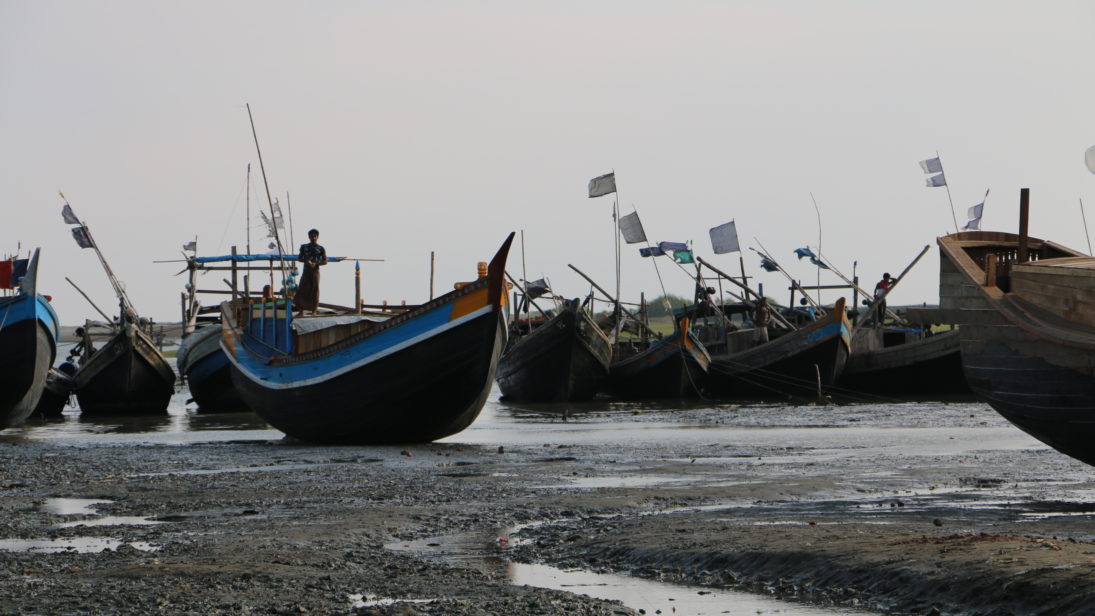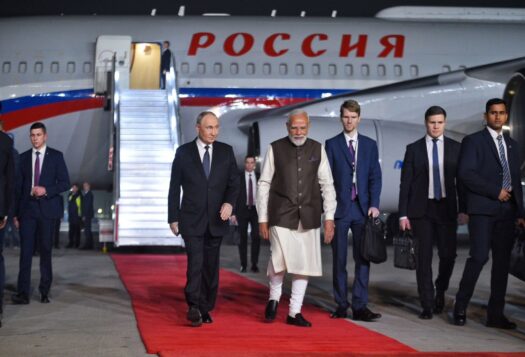
The military coup in Myanmar in early February—and the ensuing crackdown on citizens and political opposition protesting the coup—has led to an emerging refugee crisis in South Asia. The Indian state of Mizoram, which borders Myanmar, has become an entry point for citizens fleeing the country, fearing persecution. However, India’s response to the unfolding refugee crisis in Myanmar has left Delhi in a tricky situation, as the Modi government struggles to please both domestic constituencies and the neighboring country. On the one hand, Delhi must play a delicate balancing act with the Myanmar Junta to avoid ruffling its feathers; on the other, it has to manage the internal debate between itself and the state of Mizoram. The state government of Mizoram has gone against the central government, demanding protection for the citizens who fled Myanmar. They consider these refugees their brothers, with a shared ethnic identity in the Chin community.
These contrary stances between the central Indian government and the state government—and its accompanying implications for Delhi’s relations with the Junta—illustrate the need for domestic refugee laws in India. A domestic refugee law would help dictate how and how much to address refugees’ concerns in India, upholding humanitarian traditions while accommodating socio-economic and political conditions in the country. Adopting this legal framework has both pragmatic and normative merits, helping strengthen multicultural and multi-ethnic India’s aspirations to be a leader in South Asia.
India’s Refugee Policy
Despite being a vibrant state that boasts of its democratic credentials, India’s approach to refugee issues has been ambivalent. While India has adopted the Universal Declaration of Human Rights (UDHR) and is also party to many conventions on human rights, it has signed neither the 1951 United Nations Refugee Convention nor its 1967 Protocol, one of only a few democracies to not be a signatory. Delhi also lacks a constitutional or statutory law providing a legal framework to handle refugees, working instead at the political and administrative levels. India’s Foreigners Act, 1946, which is intended to manage refugees does not distinguish between foreigners and refugees, and treats refugees, asylum seekers, and immigrants all as “foreigners.” Consequently, there is a lack of clear guidance and direction in India’s policies towards refugees and displaced people. This absence of a cohesive national refugee policy to identify and determine refugees based on specific common standards and principles has complicated India’s approach to refugee asylum cases.
Discretionary policies bring about varying standards in governance and treatment of refugees depending on the political interests at play.
The absence of a national refugee policy has vested more discretionary powers in the hands of politicians and bureaucrats. Although India’s record with respect to refugees and displaced people has not been wholly negative, domestic politics and political ideologies frequently influence decisions on refugees’ status and rights. For instance, the Indian National Congress (INC) enacted the Illegal Migrants (Determination by Tribunals) Act of 1983 in order to provide undue relief to Bangladeshi migrants, apparently seeking to garner migrants’ support for the party for forming governments in the state of Assam. Although the Supreme Court declared the Act unconstitutional in 2005, this event speaks to the political interests and perceptions that affect refugee policy in India. Moreover, discretionary policies bring about varying standards in governance and treatment of refugees depending on the political interests at play. This differential treatment is clearly visible in the better treatment Tibetan and Sri Lankan refugees receive compared with most other refugees in the country.
The incumbent governments’ perceptions about security further influence this ad-hoc refugee policy. The current Bharatiya Janata Party (BJP)-led dispensation has pursued an assertive approach to national security, as seen in India’s strong posturing against Pakistan and China, and its projected zero-tolerance policy on terrorism. Notwithstanding this security context, there is a perception that refugee policy has become more exclusionary amidst the current upsurge of popular nationalism under the Modi administration. Playing the politics of fear to support its electoral ambitions, the BJP made refugee issues and illegal migration from Bangladesh central issues in its 2019 general election campaign. The party used intense anti-refugee political rhetoric around the Rohingya refugees and Muslim migrants from Bangladesh as a political lever, presenting refugees as a significant economic, social, and security threat. Further, the Modi government’s response to the inward flows of the Rohingya refugees into the country for the first time showcased the Indian government invoking “terrorist threats” as a reason for rationalizing India’s reluctant reception of refugees.
Placing India’s Refugee Policy in the Myanmar Refugee Context
In the absence of national refugee law, granting refugee status tends to be a matter of political discretion. Scenarios that invite political fury render greater space for parties holding stakes to raise their demands and employ political, diplomatic, or coercive means to influence and bend decisions in their favor. Additionally, because many populations in South Asian countries share ethnic and cultural identities that extend beyond nation-state borders—and refugee movements mainly occur within the region—refugee treatment can have fall-out across the region. For example, the Indian Tamils have demanded better protection for Sri Lankan Tamil refugees living in India.

This discretionary element makes refugee policy prone to political prejudices and misperceptions both within the country’s internal politics and among foreign countries. Difficulty distinguishing between genuine humanitarian gestures and rhetorical posturing makes the admission of refugees vulnerable to adverse reactions from various stakeholders. At times, domestic political considerations also influence the government’s decisions, even as they could prove consequential for bilateral relations with other countries. The Nehru government granting asylum to Dalai Lama in 1959, despite China’s opposition, created a strain in Indo-China relations that has persisted ever since.
Current concern about refugees from Myanmar runs parallel to these historical examples. While the situation highlights the political complexity of India’s relationship with Myanmar it has once again brought to the fore the long-standing absence of domestic refugee law in India. In other words, the looming Myanmar refugee crisis presents a governance challenge in India that stems from the lack of an effective and unified legal, institutional framework. In the event of any inadequacy in the regional mechanism, a well-crafted and carefully conceived national refugee law can prevent any breakdown and effectuate a balance between human rights and national security.
Delhi must reassess its refugee policy and take steps to avoid being caught in a political quagmire while simultaneously enhancing its credibility as a democratic leader in South Asia.
In this regard, having a refugee-administrative body can facilitate better regulation and handling of refugees, as shown by the Refugee Council of Australia and Immigration and the Refugee Board of Canada. India should especially consider a collaborative approach, incorporating civil society, NGOs, and government perspectives. This collaboration can only take place in the dynamic democratic culture to which India claims to aspire. If India better demonstrates its commitment to human rights, it will be in a stronger position to persuade and negotiate with other countries in the region that lack national refugee legislation.
The current Myanmar crisis presents an opportunity for the Modi government to reconsider its inherently inconsistent case-by-case and ad-hoc approach to refugees. Delhi must consider whether it is willing to embrace a humanitarian leadership role amidst the looming regional refugee crisis. Assuming this role seems a logical choice for India as it supports its attempts to play a more significant role in setting norms in South Asia, notably by projecting itself as the region’s net security provider. To more holistically pursue this path, Delhi must reassess its refugee policy and take steps to avoid being caught in a political quagmire while simultaneously enhancing its credibility as a democratic leader in South Asia.
***
Image 1: United to End Genocide via Flickr
Image 2: EU Civil Protection and Humanitarian Aid via Flickr


